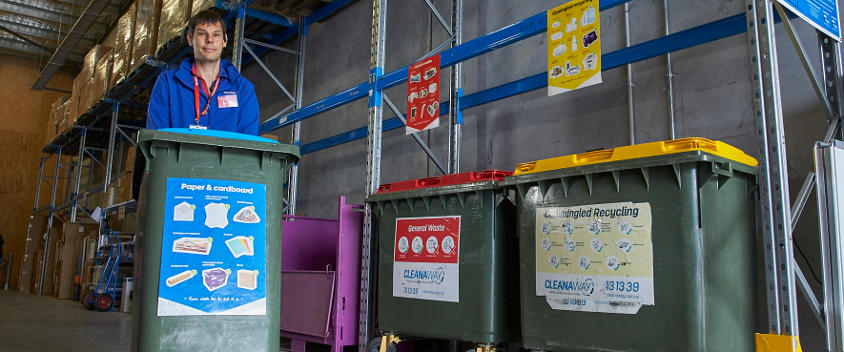Phasing out problematic plastics

In many products, plastic is a useful material as it is low cost and long lasting. However, some types of plastic present significant problems to the environment as they are unable to be recycled and may never break down, contributing to environmental issues on land and in our waterways.
Officeworks has defined problematic plastics in the broadest sense to include plastic that is difficult to recycle or causes significant environmental issues (such as PVC, expanded polystyrene or micro-plastics), single-use plastic (such as items to be designed or intended to be discarded after a single use, such as plastic cutlery) or plastic that is deemed as unnecessary (which is particularly apparent in secondary packaging materials).
Using this definition, Officeworks has developed a strategic approach to address problematic plastics of most concern. Key achievements during the 2021 financial year include:
- phasing out polystyrene from all own-brand furniture and technology items
- removing PVC from all own-brand packaging
- removing glitter from own-brand kids art and craft range and introducing plastic-free glitter alternatives
- beginning to phase out single-use catering supplies, such as plastic plates, bowls and cutlery
- removing the annual equivalent of 6.7 million pieces of unnecessary plastic packaging.
From July 2021, Officeworks has stopped selling single-use plastic products such as cutlery and plates and provide customers with sustainable and affordable alternatives. By doing this, more than 32 million pieces of plastic will be avoided each year, which is around 200,000 kilograms of plastic. Officeworks will conduct further assessments to identify the next opportunity to remove problematic plastics and implement solutions to address these. Officeworks will also continue to work collaboratively with suppliers and the industry more broadly to help accelerate progress being made to phase out problematic plastics.